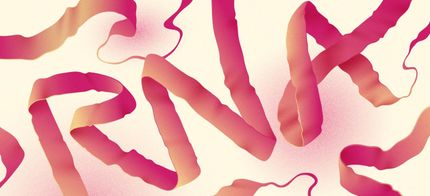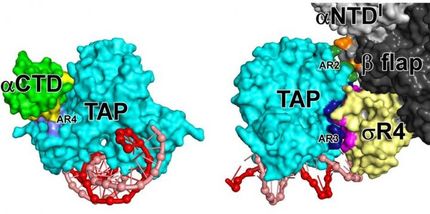Breaking the protein-DNA bond
Advertisement
The verdict is in: too many single, flirty proteins can break up a strong relationship.
A new interdisciplinary Northwestern University study reports that the important protein-DNA bond can be broken by unbound proteins floating around in the cell. This discovery sheds light on how molecules self-organize and how gene expression is dynamically controlled.
"The way proteins interact with DNA determines the biological activity of all living organisms," said John F. Marko, professor of molecular biosciences, physics, and astronomy in Northwestern's Weinberg College of Arts and Sciences. "Inevitably, any malfunction in this interaction network can lead to malevolent conditions. It is paramount to precisely understand the interaction mechanisms underlying protein-DNA associations."
To understand this vital relationship, Marko led a study examining the sites where a single protein binds to DNA. Strands of DNA have specific sites on which other molecules can bind and become a part of the DNA's genetic code. One type of DNA-binding proteins, called transcription factors (TF), are key players in the transcription of genetic information from DNA to messenger RNA (mRNA) to produce new proteins or other types of RNA. TF proteins control the biological processes in living cells by binding and unbinding to DNA.
In the experiment, Marko and his team developed a concentration of TF proteins bound to DNA mixed with unbound TF proteins, which competed with the bound proteins for their binding sites. They observed that unbound proteins caused the bound proteins to dissociate from the DNA. The unbound proteins then stole the newly available single-binding sites.
"Our experiments show that dissociation happens on the level of a single protein-DNA interaction," Marko said. "This is new information for the field."
Olvera de la Cruz led the development of a theoretical model and performed molecular dynamics simulations to show the prevalence of the protein-DNA break up at the single-binding site due to the competitor proteins. This disproves former beliefs that protein-DNA bonds were unaffected by unbound proteins and instead resulted from more "cooperative" interactions among many molecules, large protein clusters, or long DNA segments.
"Our results suggest that protein-DNA dissociation could have a profound effect on the dynamics of biological processes that depend on protein binding in vivo," Olvera de la Cruz said. "This may be an important factor to take into account when modeling gene expression in living cells."


























































